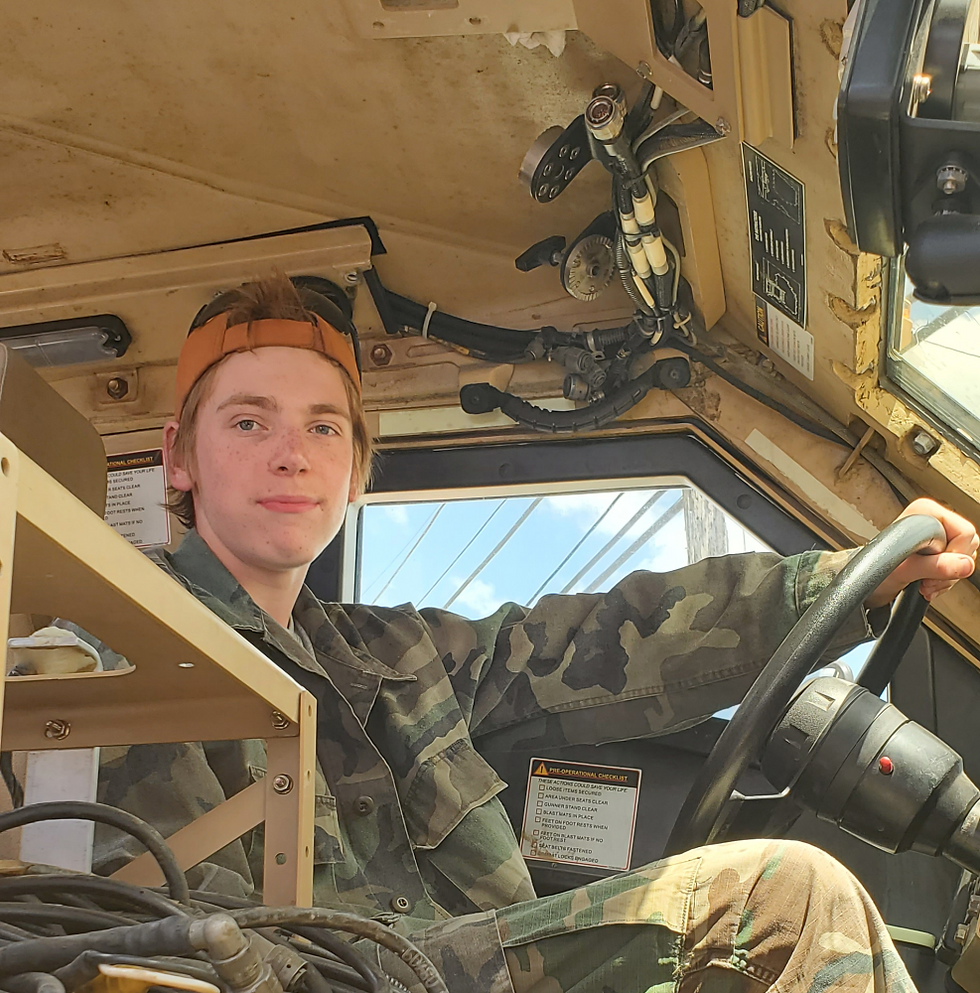Tren de Aragua and Key Fobs
- EG Weiss

- Aug 29, 2024
- 4 min read
Yes, I am going to give more space to Tren de Aragua today.
This morning, as I walked through a parking lot, I heard a sound so familiar that it usually goes unnoticed: the sharp “bleep” of car alarms being activated. It's a common ritual, a seemingly small act that gives us a sense of control and security over our possessions. But today, that sound struck me as hollow, almost symbolic of a false security. A car alarm doesn’t stop the glass from being shattered or protect against a wayward vehicle. It’s a comforting noise, a false assurance that everything is under control. This sense of false security mirrors the current state of our national borders and the growing threat from criminal organizations like the Tren de Aragua, a Venezuelan gang that has infiltrated our communities under the guise of migration.

Originating as a prison gang in Venezuela’s Tocorón prison, Tren de Aragua has transformed into a powerful transnational criminal organization, engaging in extortion, human trafficking, drug smuggling, and violent crime. They have extended their reach beyond Latin America and into the United States, capitalizing on the chaotic conditions at our southern border. Intelligence reports indicate that a significant influx of Tren de Aragua members is expected to enter Texas, specifically targeting cities like El Paso, which is already on high alert. These gang members do not simply blend in; they actively take over apartment buildings, often evicting property managers and tenants by force to establish operational bases.

This level of audacity is not limited to border towns; it has spread to “normal” places like Aurora, Colorado. In Aurora, authorities have identified components of Tren de Aragua, where the gang’s presence is not just isolated but indicative of a broader strategy to entrench itself in everyday American communities. This infiltration is a stark reminder that no neighborhood is immune from the gang's reach, and the comfort of thinking that such violence only happens elsewhere is a dangerous delusion.
The roots of this crisis can be traced back to the catastrophic political and economic situation in Venezuela. Once a prosperous nation, Venezuela has been devastated by years of economic mismanagement, hyperinflation, and a corrupt, authoritarian regime under Nicolás Maduro. The collapse of public services, rampant poverty, and severe food and medicine shortages have driven millions of Venezuelans to flee their homeland in search of safety and opportunity abroad. However, among these legitimate asylum seekers are members of criminal organizations like Tren de Aragua, who exploit the mass migration to enter countries like the United States unnoticed.

These gang members are not fleeing for a better life; they are expanding their criminal empire. They hide among families and individuals genuinely seeking refuge, using the same humanitarian pathways designed to protect the vulnerable. This tactic makes it extraordinarily difficult for U.S. law enforcement to differentiate between those who need help and those who pose a threat. The overwhelmed border systems, already straining under unprecedented migration levels, are not equipped to filter out such dangerous individuals effectively.
This situation mirrors the false sense of security provided by the familiar “bleep” of car alarms—a symbol of control in a world that feels increasingly out of control. Our border policies, much like the car alarm, offer a comforting but ultimately inadequate response to the real threats we face. We need to shift our perspective from reactive to proactive, moving beyond the illusion of security to genuine, substantive actions that address the root causes and current realities of these threats.
I’ve faced criticism for owning guns and for teaching my children to protect our home. To some, this fits a stereotype of a “Republican Texan,” which by itself offends many. But my stance isn’t about politics; it’s about the necessity of being prepared in a world where threats are real and immediate. Our national awareness needs to be as heightened as it was after 9/11, a time when the “See Something, Say Something” mentality encouraged us to be vigilant, not silent. However, today, many are afraid to speak up for fear of being labeled racist or alarmist. We’ve created a society where silence is often chosen over safety, where political correctness can undermine security.

This isn’t a call for paranoia or prejudice; it’s a call for awareness and action. The invasion of Tren de Aragua into our neighborhoods is not hypothetical—it’s happening. And if it’s happening in places like Aurora, it can happen anywhere. These are ordinary towns, much like where you and I live. We can no longer afford to believe that our communities are exempt from these threats.
We must confront these challenges head-on. Our security measures must extend beyond the superficial—beyond the symbolic clicks of key fobs and the comforting but empty reassurances of flawed policies. It’s time to bring back the vigilance that once defined our collective response to threats. It’s time to embrace a heightened sense of awareness, one that doesn’t shrink from the realities of crime and insecurity but meets them with the full weight of our capabilities and resolve.
The sound of false security—the familiar bleeps and hollow assurances—will not protect our homes or our families. We need to demand more from our leaders, our communities, and ourselves. Let’s reject the passivity of complacency and embrace a proactive stance, rooted in awareness and readiness. The stakes are too high, and the threats are too real. Our neighborhoods, our lives, and our freedoms depend on it.
Let’s heed the alarms that truly matter, not with fear but with the determination to protect what we hold dear. The time to act is now—before the false comfort of our routines becomes the prelude to our undoing.



Comments